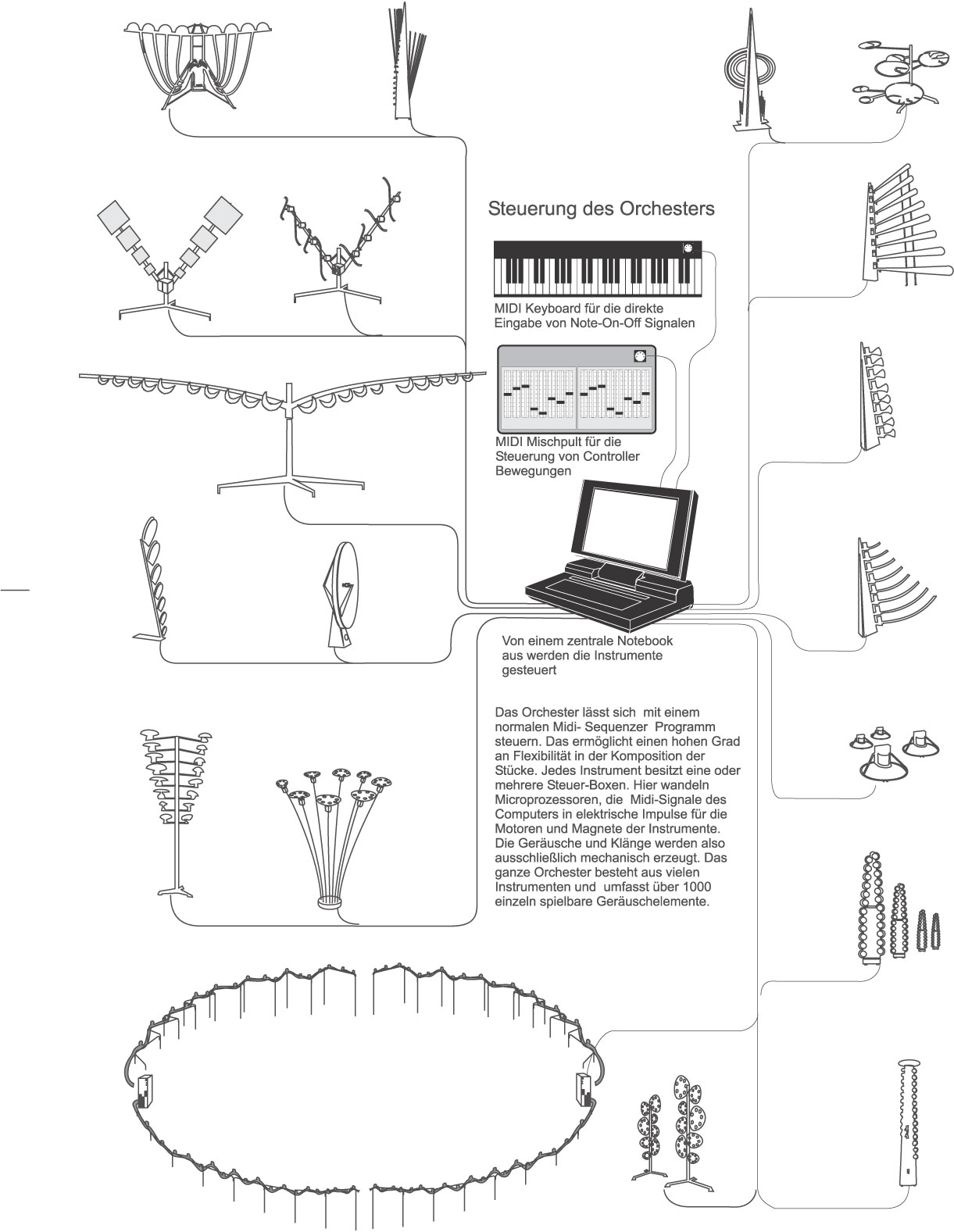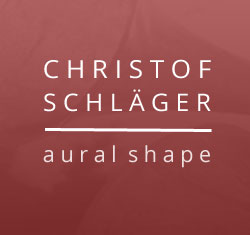|
He uses there physical existence to create the sound environment. The positions and divisions
of the sound sculptures in the room makes it possible to create an ever changing sound room
by their ensemble. The original, by the artist designed objects or instruments, that consist
of countless mechanically-electric single elements, which he calls: "Gerausch
Gestalten" (=Aural Shapes) and therefore also their personality, yes personification expresses, are
supplied by current and produced by special designed and programmed computer network. That give
the artist to not only the possibility to play each instrument separately with the help of a
keyboard connected at the network, but allows the artist the active and interactive access on
all instruments simultaneously.
In this way a Aural-Shape-Orchestra emerges, in which through the actions
of the artist not only a concert emerges but also the own compositions interprets, directs and
can be varied. At the concert the individual objects, their phenomenon are also purely optic-
aesthetic a pure pleasure, will successively be brought to live, until they unite themselves to
an inclusive soundjungle. Between that exists chirping, flapping, fluttering, murmuring, crackling,
sighing. The individual instruments starts to move in points and build there own noise shape, the
sounds hop through the room like pebbles on the water, run through it in waves and spread in all
directions. Knackdosen crack, Schellenbaum rattles, Whupi, the roomcatcher,
sets his membranes in oscillation and the impressive Federine begins to rumble. Alone the
soundpainting in the names has the ears sharpened. Klapperrappel, Memdrum and Wrummer,
Quäker, Knister and Zirr make a recording on the scale of the feels of the goose
pimples up to the stomach-aches. Technically reads itself like this: Magnets for spinning-mill machines
hit on bars and wires, garagedoors springs rumble, record player motors turn rushing plastic bags.
The listeners and spectators move the heads of on the right after on the left, after above and below
and turned them the dearest around 360 degrees, to follow the cours"
/p>
Some realized projects show the opportunities
of the Aural-Shape-Orchestra:
>> Urban Rituals
>> Abbauhammer concerts
>> Soundgate
>> Hammerwork
>> Begegnungen (=Connections)
Controlling of Soundmachines
In order to play these machines, Schläger initially used an industrial control system by Klöckner
Möller, which is still in use for the regulation of waterworks, railways, and traffic lights. However,
this method of programming proved to be cumbersome, he therefore decided to apply the data transfer
protocol MIDI (musical instrument digital interface) which offered him much more convenient options.
However, it is necessary to interpose a laptop with sequencers, compositional and notation programs
between the two. With MIDI the programming of the operations of motors and magnetic pickups is enabled.
Although the sound machines are then ready for use in performances and in installations, they are not
considered completed, rather they are subject to an ongoing process of modification, a constant
fine-tuning and adjustment of their sound characteristics. The construction of a machine is not a
completed process, but a never-ending exploration of the best-possible form. On a pragmatic level
Christof Schläger knows in advance the kinds of components he requires and he will search until he
finds the precise part he is looking for; usually it will require some physical alteration to fit into
the structure of his sound machine. On an artistic level, while Schläger has a sound in his imagination
and which he strives for, he is not rigid in his intention. The sounds evolve and come into being in
the interplay of imagination, the constant adjustment of the sound machines, and the listening
experiences of the sounds produced.

|

















